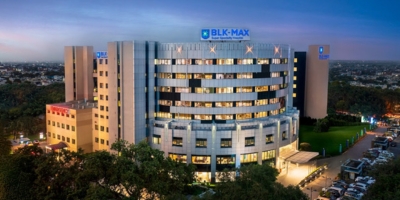Surgery for Liver Cancer in India: Guide to Cost, Hospital, Surgeon
Get surgery for liver cancer in India at affordable costs. Know everything about India's best hospitals, surgeons, and success rates. Use our comprehensive guide to find the most suitable treatment options with the best oncologists for you. Let's fight cancer together!
What Is the Cost of Surgery for Liver Cancer in India?
The cost of surgery for liver cancer in India is around USD $10,000.
The cost of liver cancer surgery in the US ranges from $30,000 to $50,000.[1] However, the price of liver cancer surgeries increases as the disease progresses. In advanced stages, the cost can reach as high as $200,000.
Moreover, no insurance covers the advanced stages of liver cancer treatment and surgeries, according to a Jama Oncology report.[2]
Let's now take a comparative look at the treatment costs for liver cancer in India and the US:
| Procedure | USA | India |
| Liver Cancer Surgery | Starts at $30,000 - $50,000 | Around $7,000 |
Cost of Alternate Treatments for Liver Cancer
The treatment of liver cancer is dependent on factors like cancer type, diagnosis stage, tumor size, age, etc. Alternate treatments for liver cancer include liver transplants, liver ablations, chemotherapy, radiation, immunotherapy, etc.
Below is the table showing the comparative costs of alternate treatments for liver cancer in the US and India:
| Procedure | USA | India |
| Chemotherapy | $1,000 - $12,000[3] | $250 - $300 |
| Radiation | $9,000[4] | $4,000 - $6,500 |
| Liver Transplant | $878,400[5] | $31,500 onwards |
| CAR T-cell therapy | $400,000[6] to $700,000[7] | $50,000 to $85,000 |
Know the complete guide to Immunotherapy for Cancer in India.
Cancer of any type, including liver cancer, requires a mix of different treatment procedures, which also depend upon the stage of diagnosis. Let’s now know them one by one:
- Tumor surgery(hepatectomy): When diagnosed in the initial stage, the tumor removal surgery removes small-sized tumors.
- Liver Transplant: In this, the entire organ is replaced with a new and healthy one.
- Liver ablation: This treatment uses electrical heat to remove and destroy tumors in the liver. The ablation is performed with needles and ultrasound devices. Electric current passes through the needle, killing cancer cells.
- Cryoablation: This ablation uses cold temperatures to kill cancer cells instead of electric currents. The cryoprobe uses liquid nitrogen to freeze and kill cancer cells in place of an electrical needle.
- Chemotherapy: Chemo drugs destroy cancer cells and suppress pain and other rated symptoms.
- Radiation: In this treatment, X-rays pass through cancer cells and kill them, containing the cancer as it spreads in the body.
Procedure: Surgery for Liver Cancer in India
Liver cancer surgery is the most effective procedure for treating primary-level liver cancer. The most common liver cancer type goes by the name hepatocellular carcinoma (HCC). The type of surgery depends upon several factors. The factors include no. of tumors, damage level of the liver, age, etc.[8]
Types of Surgery
Wondering what are the various surgeries for liver cancer? According to the Cancer Research Institute UK, there are primarily two surgeries for liver cancer.[9] They are:
- Liver resection
- Liver transplant
In liver resection surgery, surgical removal of the cancerous tumor and the surrounding tissues happens. There are different types of liver resection surgeries, like:
- Liver lobectomy: This procedure involves removing one or more liver lobes. The surgeon removes diseased tissues while preserving the remaining healthy liver, which can regenerate over time.
- Hemi hepatectomy: A hemi hepatectomy is a surgical procedure that removes either the right or left half of the liver, typically to treat liver cancer or other localized liver diseases.
- Cholangiocarcinoma: Cholangiocarcinoma surgery involves resecting the tumor, surrounding tissue, and affected lymph nodes, followed by bile duct reconstruction.
- Angiosarcoma resection: This surgical procedure involves removing cancer cells that develop in the inner lining of blood vessels. The surgery aims to remove the tumor tissues and potentially affected liver portion.
However, the surgeon is likely to perform liver resection only if:
- The tumor growth is small
- You have a healthy liver
- The cancer growth hasn’t spread to the blood vessels
In liver resection, the surgeon removes a portion or lobe of the liver. The liver can grow itself back over time. Therefore, the mandatory condition before the liver resection surgery is that you have a 100% fully functional and healthy liver.[10]
In cancer such as fibrolamellar HCC, liver resection is recommended as the preferred treatment as this develops mainly in young adults with healthy livers.
One of the risks this surgery poses is the return of infection due to the moving away of the tumor before removal. This is the reason why liver resection surgery is only performed on small, early-stage tumors.
In liver transplant surgery, the whole organ is replaced with a new, healthy liver. The transplant is more common in cases of hepatocellular carcinoma cancer. However, there are conditions a patient should have:
- A single tumor (not more than 5 cm in size)
- A single tumor of 5 cm to 7 cm in size which has not expanded in the last six months
- A maximum of 5 tumors of size 3 cm or less.
For a liver transplant, you will require a donor who is mostly a relative. You will also have to go through conventional methods of chemotherapy and radiotherapy prior to transplant. Read more on liver transplant: A Comparison between India, USA and Canada.
Want to know more about surgery as an option for other cancers, such as prostate cancer? Read our blog on Robotic Surgery for Prostate Cancer In India.
Precautions and Preparations Before the Surgery
Before your surgery, the doctor will suggest some prehabilitation procedures to help you quickly recover. Here are some preparations and precautions:
- Be in your best health[11]
- Eat healthy
- Get proper sleep
- No smoking and alcohol consumption
- Counseling sessions by the medical team
Recovery After Liver Surgery
The liver will grow back and recover fully even if two-thirds of it has been removed. The organ will be in its usual size within a few months.[12]
Post-surgery:
- There is a risk of internal bleeding, and you will be under supervision.
- Typically, you will have to spend 5-6 days in the hospital after the surgery. There may be the possibility of keeping you in the ICU for some time before shifting you to the private ward.
Side Effects of Liver Surgery
Here are some potential side effects of liver surgery, according to Cancer Research UK[13]:
- Infection risk in the area of the surgery
- Bile leakage
- Bleeding risk
- Blood clotting dysfunctioning
- Pneumonia
- Kidney problems
- Pleural effusion (fluid around the lungs), etc.
Overview of Liver Cancer
Liver cancer is a severe and often life-threatening condition. In this cancer, cancerous growth happens in the cells of the liver. It can be primary, meaning it starts in the liver itself. It can be secondary as well, resulting from cancer that has spread from other parts of the body.
This complex disease requires a multidisciplinary approach to diagnosis and treatment, with surgery playing a crucial role in many cases.
In liver cancer, an abnormal cell growth appears in the liver that grows uncontrollably, forming tumors. This disease disrupts the liver's vital functions, including detoxification, protein synthesis, and bile production.
As tumors grow, they can impair blood flow, cause pain, and lead to liver failure. Liver cancer often develops silently, making early detection challenging and potentially resulting in severe health complications if left untreated.
The World Cancer Research Fund (WCRF) reports liver cancer as the 6th most common cancer type[14]. Men are more prone to this cancer type than women. In men, it's the 5th most common cancer type, and in women, it’s the 9th.
The United States has the second-highest liver cancer cases in the world after China, as per the latest WCRF report.
Surgery is often a primary treatment for liver cancer because it offers the potential for complete tumor removal. It can even cure cancer in the early stages and improve survival rates.
Surgery involves the removal of the tumor and surrounding tissues and, in severe cases, a liver transplant.
Liver cancer surgery typically involves removing the tumor and healthy tissues around it.
Surgery can be open surgery, which is the traditional form of surgery with long cuts and removal of tumors, or it can be using newer, minimally invasive techniques. The liver's unique regenerative ability allows for significant tissue removal while maintaining function.
Global Perspective on Liver Cancer
Liver cancer is a major global health ailment. Journal of Hepatology reports approximately 905,700 new cases and 830,200 deaths worldwide in 2020.[15] Incidence rates vary significantly across regions. The journal says liver cancer cases and deaths can expand by more than 55% by 2040.
Hepatitis B and C infections, cirrhosis, and excessive alcohol consumption are primary risk factors. Recent studies indicate a rising trend in cases, particularly in Western countries, due to increasing obesity and non-alcoholic fatty liver disease.
Advanced methods of early detection and targeted therapies have improved survival rates. However, liver cancer remains a notable challenge for healthcare systems globally.
Over the years, India has made large-scale medical advancements in cancer treatment infrastructure.[16] India now boasts several cancer specialist hospitals and doctors.
The hospitals are equipped with cutting-edge health technologies that offer high-quality oncology treatment. These technologies include minimally invasive surgeries, the latest organ preservation techniques, robotic transplants, advanced imaging, and immunotherapy.
Moreover, surgeries and treatments in India are very cost-effective. The cost of surgery for liver cancer in India, like a liver transplant, starts at just $31,500, and in the US, it can be over $800,000[17].
This means you save over 95% compared to US costs. Also, liver resection surgeries cost much less than those in the US, UK, Australia, etc.
What Is the Success Rate of Surgery for Liver Cancer in India
The success rate of surgery or treatment for liver cancer in India is more than 75%. Research published by the Springer Medical Journal indicates surgical resections and transplantations have fairly successful outcomes and a high liver cancer treatment success rate.[18]
Best Hospital for Surgery for Liver Cancer in India.

JCI-accredited, it is one of the largest private hospital. It ranks among the top 10 multi-specialty hospitals.
Dedicated services for medical tourists from over 100+ countries.
It serves local and international patients, specializing in orthopedic treatments, cancer, bariatric surgery, and cardiology with advanced, European-standard equipment.
- 60+ Years of Experience
- JCI Accredited
- NABH Accredited
- Advanced technology medical oncology like immunotherapy, targeted therapy and chemotherapy
- Leading medical oncology specialists with organ-specific expertise
- Round-the-clock critical care with OPD services, which are designed for an organ-specific approach

NABH-accredited, this hospital is a renowned 250-bed hospital in New Delhi.
The hospital is well-equipped with Tesla MRI and Cath Labs and 50+ critical beds. With this, it offers Orthopaedics, Cardiology, Urology, Neurology, Paediatrics, Obstetrics, and Gynaecology.
- NABH Accredited
- 300+ Doctors
- 22+ Departments
- JCI-accredited with high-tech equipment like Da Vinci Robot, Novalis Tx for IMRT/IGRT, Radiosurgery, HIPEC and SRS/SRT for oncology care
- Pioneers in all kinds of cancer treatment, including immunotherapy, hormone therapy and stem cell transplant
- Highly skilled oncology team, including specialists with over 4 decades of experience
Best Specialist for Surgery for Liver Cancer in India.

Dr. Surender Kumar Dabas( BLK-Max Super Speciality Hospital )
With over 20,000 robotic surgeries, Dr. Dabas is a renowned cancer surgeon, trained at the University of Chicago.
He specializes in surgical oncology and mentors surgeons globally to advance innovative cancer treatment techniques.
Education
- Maulana Azad Medical College, New Delhi.
- Lady Hardinge Medical College, New Delhi.
- National Board of Examination, India.
Memberships
- International Guild of Robotic & Endoscopic Head & Neck Surgery
- Indian Association of Surgical Oncology
- Robotic & Endoscopic Head - Neck Surgeons

Dr. Harit Chaturvedi( Max Super Speciality Hospital, Saket )
Dr. Harit Chaturvedi is the Chairman of Max Institute of Cancer Care.
He is also the Director of Surgical Oncology at Max Super Speciality Hospital, Saket.
He leads a team of over 80 oncologists and has performed surgeries at live workshops.
Dr. Chaturvedi has also supported cancer awareness and anti-tobacco campaigns for over a decade.
Education
Dr. M.G.R Medical University, Chennai, India.
Memberships
- Association of Surgeons of India
- Indian Association of Surgical Oncologists
- Association of Breast Surgeons of India (ABSI)
Why MTC Partners for Liver Cancer Surgery?
Liver cancer is a serious medical condition that requires top-notch medical expertise and care. With MTC’s JCI-accredited partner hospitals, you can get
- Comprehensive treatment plan and support team.
- A highly skilled team of surgeons with over 3 decades of experience and affiliations with the top international guild of oncologists.
- State-of-the-art facility with early diagnosis thanks to high imaging CT scans, blood tests, liver biopsies, and localized cancer care treatments.
MTC’s partner hospitals also qualify for high-quality parameters, including a proven track record of successful surgeries, active surgeons being members of Oncology Surgeon Societies, the latest medical technologies, aftercare services, etc.
Conclusion
With a success rate of over 75%, Surgery for Liver Cancer in India showcases excellent medical facilities, certified surgeons, and proficient care, all at affordable prices. Contact us to find the right hospital for your cancer treatment today!
Is Surgery for Liver Cancer Safe in India?
Yes, surgery for liver cancer in India is safe, with a cancer treatment success rate averaging over 75%. However, the risk increases with later stages of cancer, and there are side effects involved. Therefore, no one can guarantee a 100% cure in cases of cancer.
FAQs
Life expectancy varies from individual to individual. However, the long-term or over 10-year survival rate averages 40% or more. The 5-year survival rate goes up to 90% or more. The earlier the diagnosis and the smaller the size and number of tumors, the higher the chances of survival.
The most successful liver cancer treatment depends on the stage of the cancer. If the cancer is small and hasn't spread into blood vessels, liver resection surgery and liver transplant are the most successful treatments. Advanced-stage liver cancer treatment also involves chemo, radiation, ablation, intra-arterial therapies, and more.
Yes, liver cancer surgery has some risks. However, these risks vary individually and from procedure to procedure. There are chances of internal bleeding, bile leakage, blood loss, fluid imbalance, and more. But it’s also necessary to get rid of the cancer. You need to take some risky steps.



